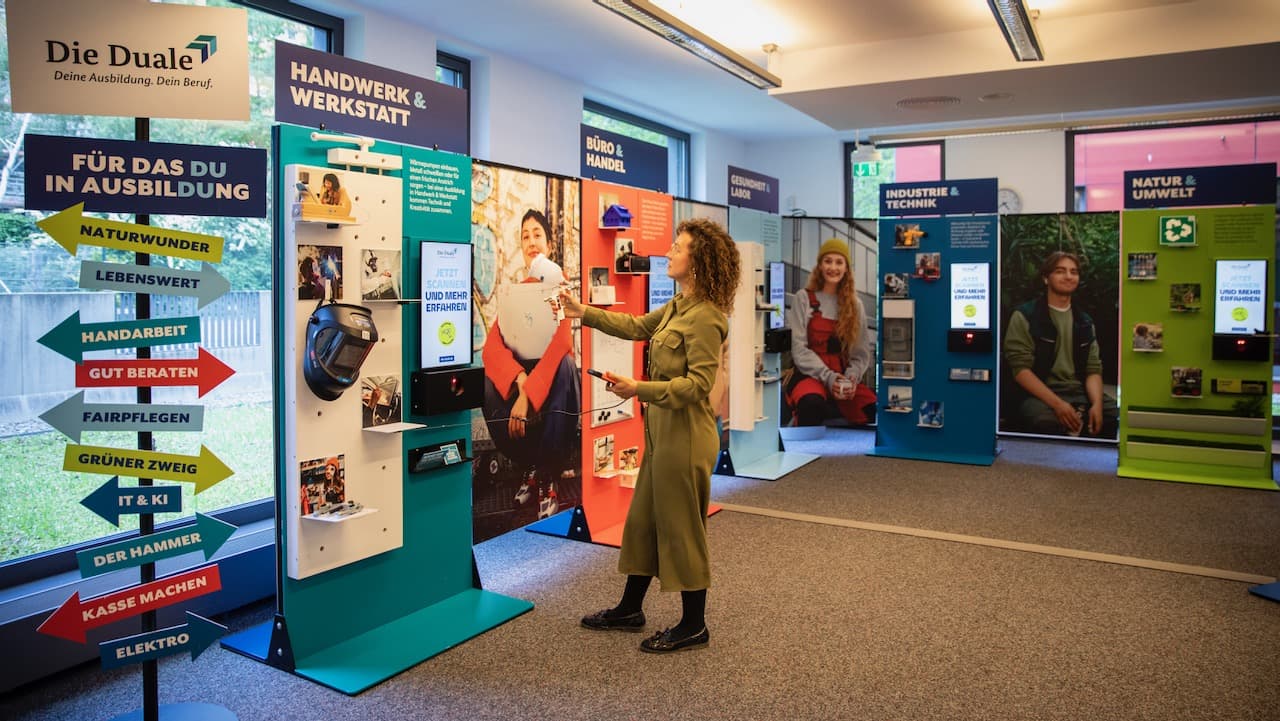Vocational Training: Orientation for Refugees
Who helps me find a vocational training position?
Finding a vocational training position is usually not easy. The trainees often have to meet different requirements such as sufficient knowledge of German language or prior internship experience in the field. Furthermore, one has to stand compared to other applicants during the application process and job interview. If you cannot compete with other applicants, it is not so easy to enter the training market.
Since many refugees often find it challenging to find a vocational training position, there are various organisations and initiatives in Germany that facilitate their access to the training positions by offering different types of support, ranging from preparatory courses and orientation assistance to coaching and mentoring.
What are my options?
Vocational Training Preparatory Courses ("Ausbildungsvorbereitung")
In most preparatory courses, it's all about getting you up to speed regarding language skills. In principle, you must already have a specific language level (A2 / B1) to start with- during the course you will continue to learn German for everyday life, but you will also be taught work-related language skills. Meanwhile, you will also acquire the necessary information about the labour market and the education system in Germany.
Professional Orientation
Professional Orientation assistance provides you with the opportunity to learn about different professions in Germany, either by taking part in workshops or specialised courses or by accompanying a trainee for a few days or participating in various internships. By doing so, you gain a direct insight into everyday chores in different professions (such as hairdresser or carpenter) and can see what suits you better.
Training Coaching or Mentoring
When it comes to training coaching or mentoring, it is actually about finding a vocational training place. The organisations who offer this service support you in:
- preparation of your application documents
- searching for a training position in a company ("Ausbildungsbetrieb") or a vocational school ("Berufsschule")
- preparing for the interviews
The employees of these organisations also support you in all necessary administrative procedures (e.g. at the Immigration Office, the Employment Agency, etc.) and when applying for financial support (“Berufsausbildungshilfe“).. Even after your training starts, you can still contact the staff if you have any question or problem.
Where can I find these services?
In many German cities, there are particular organisations and initiatives whose aim is to facilitate refugees' access to vocational training. These include Arrivo Berlin and Joblinge in more than 30 cities. There are also many other smaller and larger organisations in other cities that can help you find a training position, for instance, the Youth Migration Office can help you find such an organisation in your area and provide you guidance and assistance on your path to vocational training. You can find a Youth Migration Office in your area on jugendmigrationsdienste.de.
Important
After finishing your vocational training, you are a skilled worker. Skilled skilled workers are wanted in Germany and receive more for their work than unskilled workers. Vocational training can also be an opportunity for you to obtain long-term residence rights in Germany.
Similar topics
Additional links
hr integrate
hr integrate supports job-seeking Refugees by connecting them to Human Resources Managers in different organisations.
Youth Migration Service (JMD)
The counselling centres of the Youth Migration Service (JMD) offer support and advice to refugees and migrants under the age of 27 on various topics in many different languages.
Joblinge
Here you can find branch offices of Joblinge around Germany.
Our community in the forum
Quickly find answers to any question. Benefit from the experience of your community and exchange ideas.
Support on site
Are you looking for counseling centers, meeting points, and other services? Use our search engine.







